“The sea gives us the idea of the indefinite, the unlimited, and the infinite; and in feeling his own infinite in that Infinite, man is stimulated and emboldened to stretch beyond the limited.” Hegel
I was sitting on the cobalt blue tiles of my bathroom floor reading Hemingway, while my youngest son played with water in his plastic bathtub. Hemingway helped. Few days earlier my cardiologist had said, everything is fine with me, I just need to be more relaxed. Think, what brings you peace and consume it in large amounts, texted my mum. Weed? I turned to books. Even if my body will start to play tricks again, I said to myself, I will read one more page before even thinking “I’m dying” or something like that. One more page. It was three years ago. Hemingway helped. They say, it’s an iceberg method. He writes about going, eating, drinking, doing, while emotions, reflections stay deep under the water, but you still feel their presence. I felt good among his sentences, very good, and I didn’t think too much about the fact, that in the end he shot himself. He was a great guy.
I live 150 meters from Lielupe river. It’s right there. But, just like the river, I flow to the sea. I have to walk four kilometers to get to the Asari beach. It’s far. It felt far back then when my panic attacks left me wondering, what would happen if I would faint in the middle of that long road to the sea, what would happen to the strollers with my youngest in it? I started to take books with me. It’s a straight road to the sea, with seldom cars, I put a book on the strollers, walked slowly enough to read my way to the sea, one more page, and muttered a fuck when it started tor rain or snow, dotting the pages with droplets and blurring the letters. It was January.
Why Hemingway? Just a coincidence. I had stumbled back then upon a month old article in The Paris Review, saying, Hemingway’s A Movable Feast had risen to the first place in France following terror attacks in November, 2015. Sales started to boom when an old Parisian lady, Danielle, was interviewed in the street next day after the massacre, and she suggested, that “it’s very important to bring flowers to our dead. It’s very important to see, many times, Hemingway’s book, A Moveable Feast, because we are a very ancient civilisation”. I had never read it before, so I borrowed the book from my grandma’s shelves, and started to read, sitting on the cobalt blue tiles of my bathroom floor in January, 2016. Four kilometers from the sea.
It’s different now. Better. For long stretches of time I even forget that once I read books to not to “die”. It wasn’t funny then. My road to the sea, the Olga’s Street, doesn’t feel that long anymore. I don’t pack food to get there. I just go and come home. I don’t imagine me fainting. I got other ideas instead. Sea Library was born somewhere around Olga’s Street 61. But I go to the sea for the very same reasons. To get another dose of that liberating feeling, that you can experience only when close to the sea. Especially in winter, when sunlight is rare, the beach is the only place where the low sky doesn’t push me down. The weather is always beautiful by the sea.
Sea doesn’t care and sea doesn’t listen (rivers ask questions and rivers listen and sometimes I hate that), it just lets me be in her magnificent presence. Magnitude in movement makes me more me. When I enter the seaside, I enter a different world. Spacious, charged, hilarious. And I enter naked, even when not. Clothes are left hanging by the magical door. Lungs become filled like two big balloons and I float above the horizon. Sea leaves me alone, and suddenly I can leave myself alone, too. A wide pocket opens, deep in my soul, an ancient wound that doesn’t need to be healed. Sea is my psychosomatic Sunday. I immerse my hands deep in my inner life and am strangely happy. Because I can’t reach, where those pockets end.
Each night my youngest son asks me to lie next to him, to wait, while he falls asleep. Don’t say anything, he pleases, and sometimes even doesn’t want to be touched. He just needs my presence, while he enters the dream world. During the day, I am his river. When the moon rises, I become his sea.
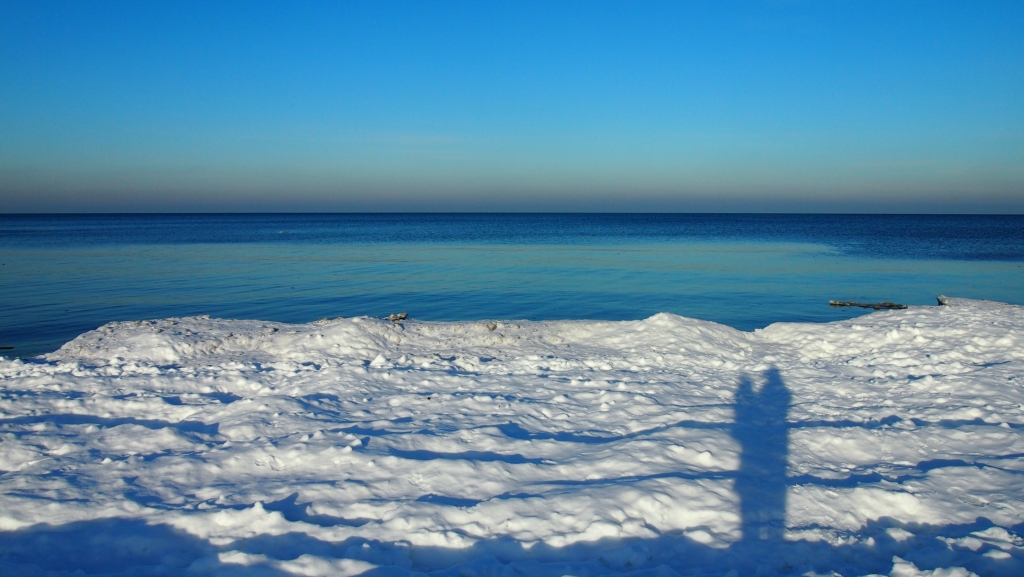
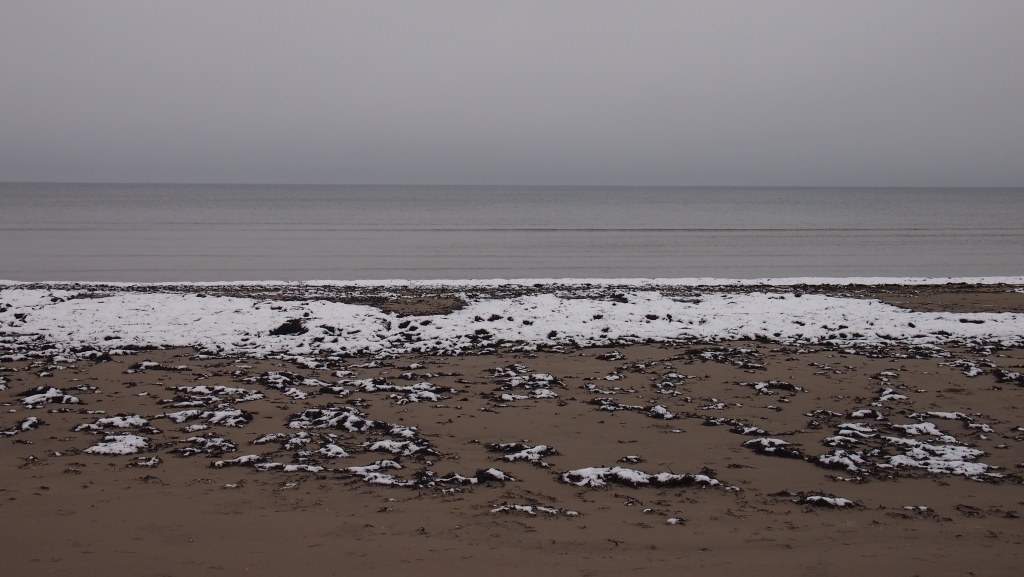
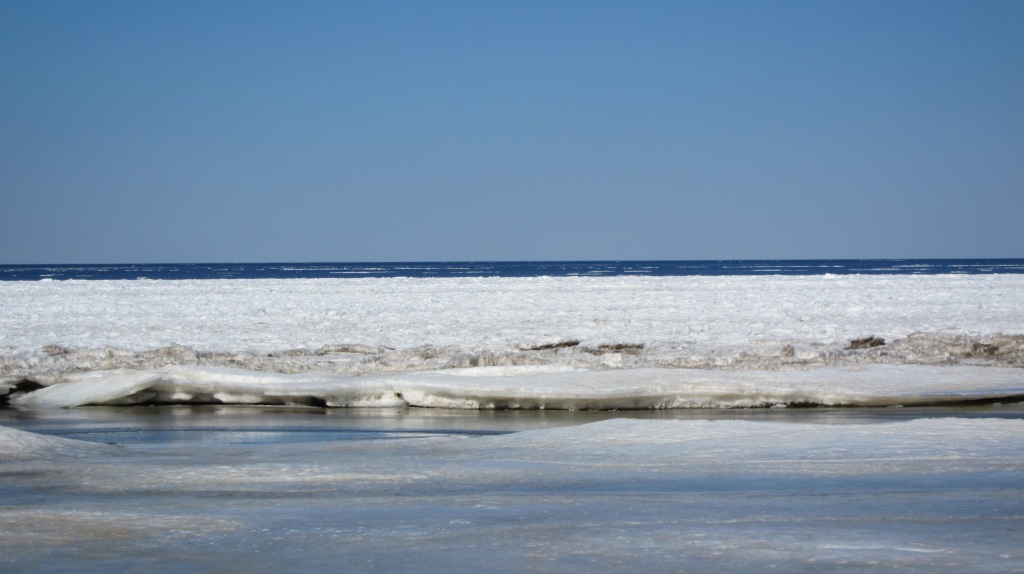
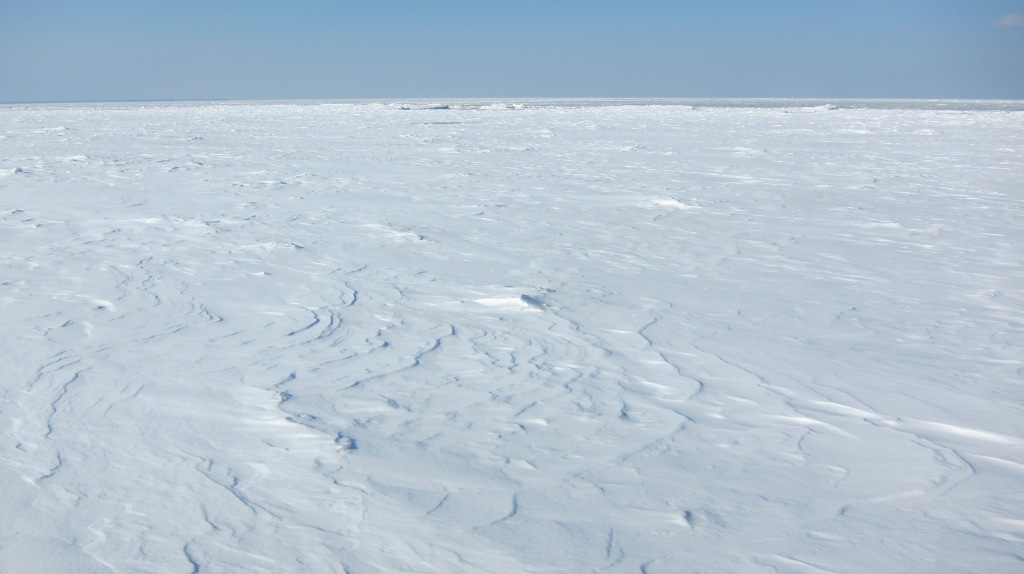
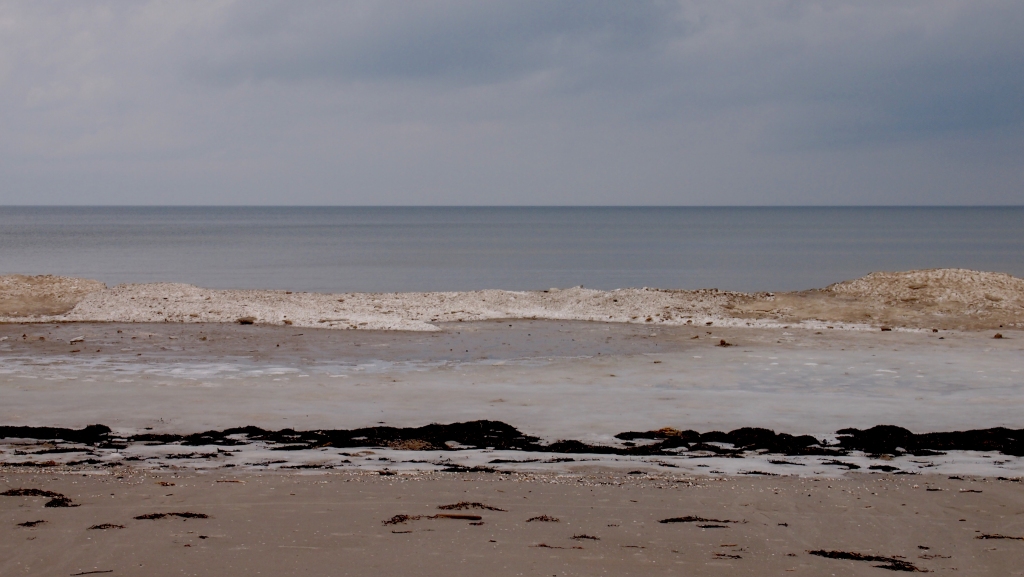
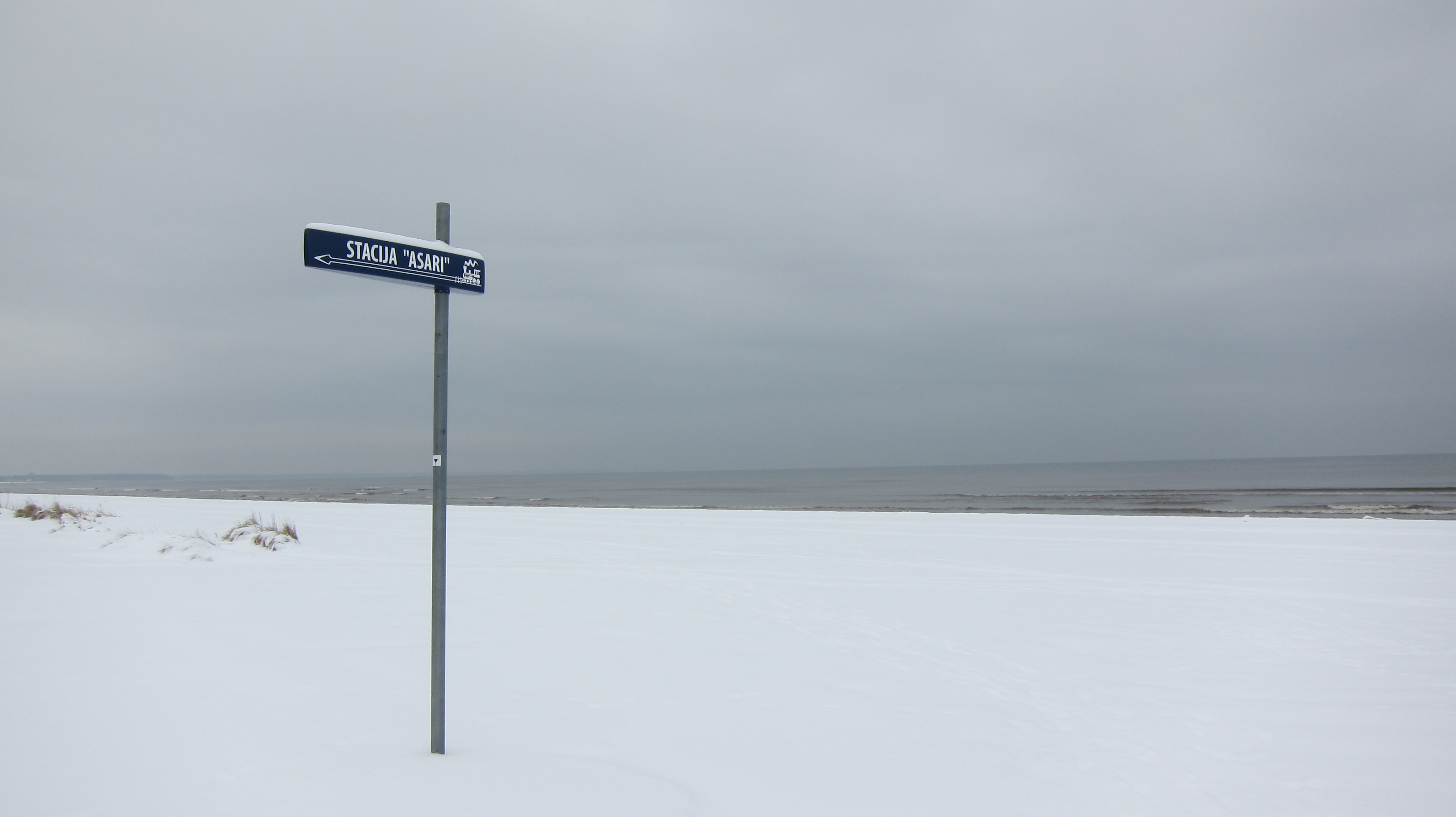
Es sēdēju uz vansistabas zilajām flīzēm un lasīju Hemingveju, kamēr Niklāvs spēlējās ar ūdeni savā plastmasas vanniņā. Hemingvejs palīdzēja. Pirms dažām dienām kardiologs man bija teicis, ka ar mani viss ir kārtībā, ka man esot vairāk jāatbrīvojas. Padomā, kas tev dod mieru un patērē to lielos daudzumos, īsziņā raksta mamma. Zālīte? Pievērsos grāmatām. Pat ja mans ķermenis atkal sāks taisīt trikus, noteicu pie sevis, es izlasīšu vēl vienu lappusi un tikai tad ļaušos tādām domām kā “es mirstu” vai tamlīdzīgi. Vēl vienu lappusi. Tas bija pirms trim gadiem. Hemingvejs palīdzēja. To saucot par aisberga metodi. Viņš raksta par iešanu, ēšanu, dzeršanu, darīšanu, kamēr emocijas, pārdomas paliek dziļi zem ūdens, un tomēr tu jūti, ka tās tur ir. Man bija labi starp viņa teikumiem, ļoti labi, un es pārāk nedomāju par faktu, ka beigās Hemingvejs nošāvās. Viņš bija superīgs džeks.
Es dzīvoju 150 metrus no Lielupes. Tā ir tepat. Bet tāpat kā upe – es plūstu uz jūru. Lai tiktu līdz Asaru pludmalei, man ir jānoiet četri kilometri. Tas ir tālu. Tas šķita tālu toreiz, kad panikas lēkmes man lika domāt, kas notiktu, ja es, piemēram, noģībtu turpceļā uz jūru, kas notiktu ar mazo ratos? Es sāku ņemt līdzi grāmatu. Uz jūru ved gluds, taisns ceļš, mašīnas pa to brauc reti, uzliku grāmatu uz ratiem un lēnām aizlasīju savu ceļu līdz jūrai. Vēl vienu lappusi, nomurminot velns, ja sāka līt vai snigt, nopunktojot lapas ar pilieniem un pludinot burtus. Tas bija janvāris.
Kāpēc Hemingvejs? Tikai sakritība. Toreiz uzdūros mēnesi vecam rakstam The Paris Review par to, ka Hemingveja “Mūžīgie svētki” Francijā kļuvuši par dižpārdokli uzreiz pēc terorakta 2015. gada novembrī. Pārdošanas rādītāji burtiski uzsprāguši, kopš kāda veca parīziete vārdā Danielle, satikta nākamā rītā uz ielas, intervijā pēc asiņainā slaktiņa ieteica, ka “ir ļoti svarīgi nest puķes mūsu mirušajiem. Ir ļoti svarīgi atkal un atkal ieskatīties Hemingveja “Mūžīgajos svētkos”, jo mēs esam ļoti sena civilizācija”. Aizņēmos grāmatu no vecmāmiņas plauktiem un sāku lasīt, sēžot uz vansistabas zilajām flīzēm 2016. gada janvārī. Četrus kilometrus no jūras.
Tagad ir citādāk. Labāk. Ilgi pat aizmirstu, ka reiz es lasīju grāmatas, lai “nenomirtu”. Toreiz tas nelikās smieklīgi. Arī mans ceļš uz jūru, Olgas iela, vairs nešķiet tik gara. Es vairs neņemu līdzi ēdienu, lai to noietu. Es vienkārši aizeju un atnāku. Es neiztēlojos, ka varētu noģībt. Tā vietā rodas daudz labākas domas. Jūras bibliotēka dzima kaut kur ap Olgas ielu 61. Bet uz jūru es eju to pašu iemeslu dēļ. Lai saņemtu jaunu devu tās atbrīvojošās sajūtas, kuru varu piedzīvot tikai pie jūras. Jo īpaši ziemā, kad saulesgaismas ir tik maz, pludmale ir vienīgā vieta, kur zemās debesis mani nenospiež. Pie jūras laiks vienmēr ir skaists.
Jūrai ir vienalga un jūra neklausās (upe uzdod jautājumus, un upe tevī klausās, un reizēm mani tas tracina). Jūra ļauj man vienkārši būt viņas tuvumā. Milzīgā kustība ļauj man būt man. Kad ierodos pludmalē, es ierodos citā pasaulē. Plašā, uzlādētā. Un es ierodos plika, pat ja nē. Drēbes paliek kaut kur uz maģiskā sliekšņa. Plaušas piepildās kā divi lieli baloni, un es lidoju virs horizonta. Jūra liek mani mierā, un pēkšņi es arī pati varu beidzot likt sevi mierā. Atveras liela kabata, kaut kur dziļi dvēselē, antīka brūce, kas izrādās nav nemaz jāsadziedē. Jūra ir mana psihosomatiskā svētdiena. Es sabāžu rokas dziļi savā iekšējā pasaulē un esmu laimīga. Jo nevaru aizsniegt, kur tās kabatas beidzas.
Ik vakaru četrgadīgais Niklāvs man saka, lai paguļu viņam blakus, lai pagaidu, kamēr viņš iekrīt miegā. Nerunā, viņš lūdz, un dažreiz pat negrib, lai pieskaros. Tikai manu klātbūtni, lai varētu iesoļot sapņu pasaulē. Pa dienu es esmu viņa upe. Kad uzaust mēness, es kļūstu par viņa jūru.
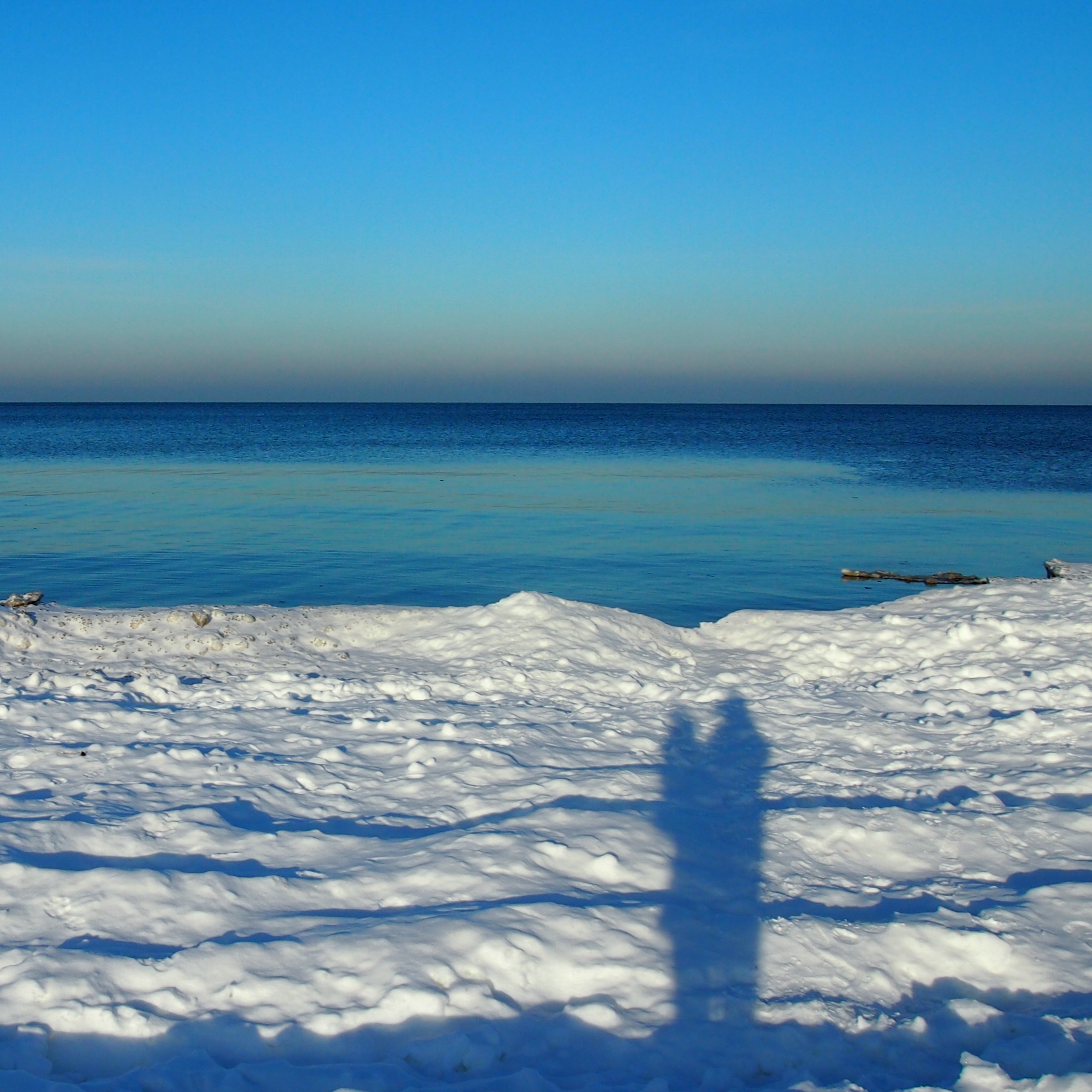
Your writing in your second language has improved so much but at the centre of it is this open heart, delighting in your relationship with nature. Well done!
LikeLiked by 1 person
Thank you !
LikeLike
You’re a gentle foghorn in my fog.
LikeLike
Beautiful! Thank you.
LikeLiked by 1 person
thank you !
LikeLike